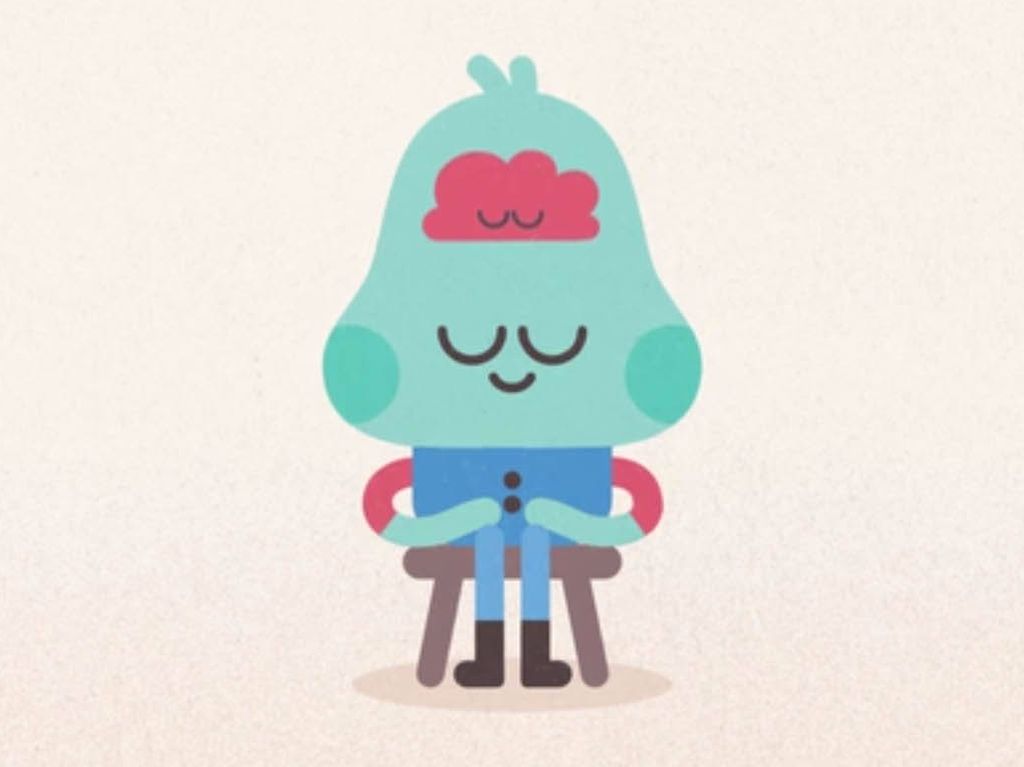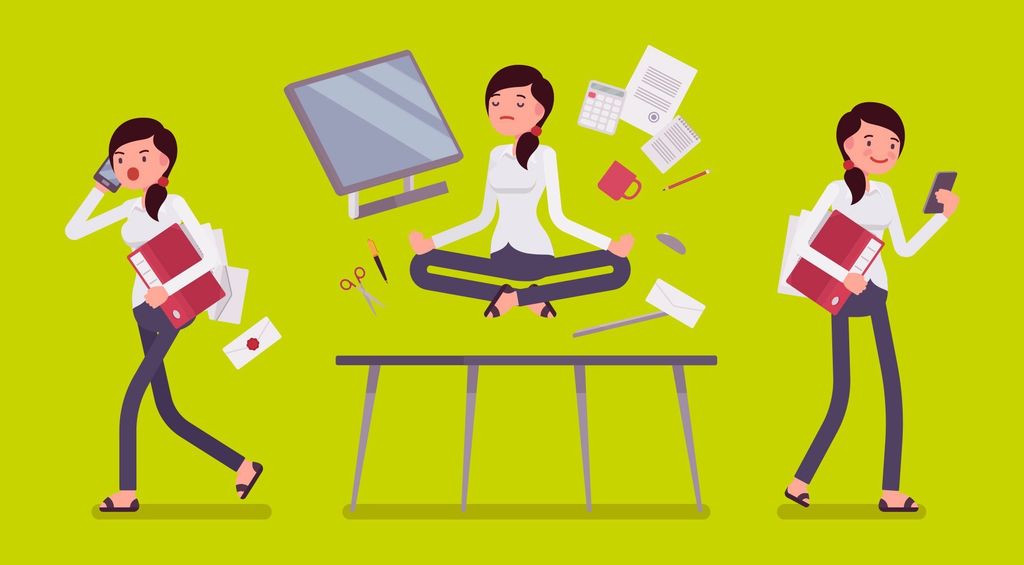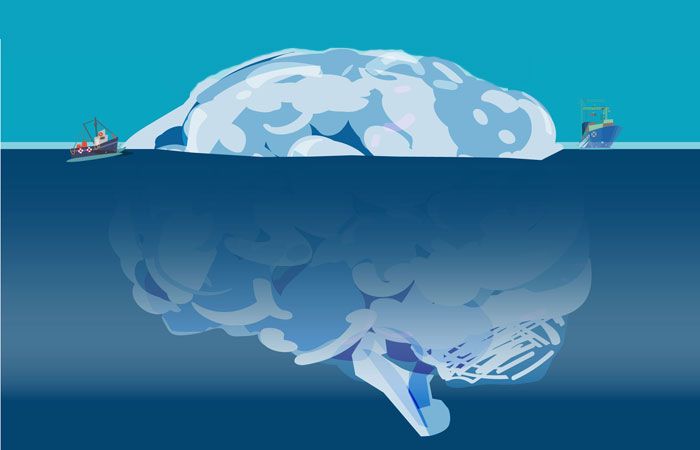Happy Life
Aug 20, 2019 • 169 views
“Very little is needed to make a happy life; it is all within yourself, in your way of thinking.”- Marcus Aurelius
Humans have long been pondering over the question of happiness. Where does happiness come from? What does one need to be happy? How can one be satisfied? All these questions have troubled philosophers for ages, but if we look at it from above, the key to happiness is plain and simple. It's the person herself. How we live is reasonably up to us, we need to have this realization. We need to understand that we are sufficient in ourselves to be happy, that we don't need material things from outside to stay content.
Following are some scientific ways that can help you to live a happier life.
Exercise

Jogging is a form of Exercise. Source: everydayhealth.com
Most people don't relate to exercise and changes in their mood. Most of us are not enthusiastic when we are heading to the gym, but science may change your perspective entirely. A study has shown that exercise has the most significant effect on reducing mental illnesses like depression. This study had three groups which were treated with either yoga, meditation, or both. The relapse percentage for those with meditation alone was 38 while those with both mediation and exercise was 31% and surprisingly for those with exercise alone was just 9%! Many other studies have also consistently provided evidence for activity improving the overall happiness and life satisfaction of people. Thus your first step towards a happier life should be to get on that treadmill. Good things come to those who sweat!
Here are some tips that might help you.
Sleep

A Pecaefully sleeping child. Source: istockphoto.com
Many believe that sleep cures everything. Dalai Lama says, "Sleep is the best Meditation." No one can underestimate the importance of good, quality sleep in our lives. It is advisable to sleep for a minimum of 7- 8 hours daily. Sleep not only improves memory, concentration, and immunity, it also has a direct link to happiness. Studies have shown that when you are well-rested, the cortex of your brain can better control Amygdala, the seat of emotions. Thus you become capable of keeping a check on your feelings and produce a more balanced and informed response. Another study by neuroscientist Matthew Walker has shown that the reactivity to negative stimuli increases when a person is sleep-deprived. Thus whether you know it or not, you might be having a lot of negative responses because you haven't slept enough.
These tips might help you to sleep better.
Meditation

Meditating Source: www.businessinsider.com
Meditation has been around for thousands of years, and there is a good reason for that. It opens gates to a whole new perspective about oneself and the world. It has been proven by research that meditating continuously for eight weeks can improve happiness levels in a person. Shawn Anchor suggests that even two minutes of meditation every day can completely rewire the brain to having an optimistic and mindful perspective on things. A study at Compuware Corporations showed that consistent meditation increased the experience of positive emotions and reduced depressive symptoms. Another study further proved that after reflection, the parts of the brain associated with compassion and self-awareness grew while those associated with stress decreased in size. Merely being conscious of breathing for 30 seconds can also help. You should try to adjust 5-10 mins of meditation somewhere in your schedule for improved quality of life.
If you're new to meditation, you might want to visit this link.
Flow

A Child Drawing In Flow. Source: www.metroparent.com
Mihaly Csikszentmihalyi said, "The best moments in our lives aren't the passive, receptive, relaxing times. The best moments usually occur if a person's body or mind is stretched to its limits in a voluntary effort to accomplish something difficult and worthwhile. Optimal experience is thus something we make happen." We have heard the time, and again that life is a journey, not a destination, and that is the essence of the concept of flow. Flow can be defined as the mental state of operation in which a person is performing an activity, fully immersed in a feeling of energized focus, full involvement, and enjoyment in the process of the action. The sense of flow has the following characteristics according to Mihaly:
Completely involved in what we are doing- focused, concentrated.
A sense of Ecstacy- of being outside everyday reality
Great inner Clarity- knowing what needs to be done and how well we are doing.
Knowing that the activity is doable- that our skills are adequate for the task.
A sense of Serenity- no worries about oneself and a feeling of growing beyond the boundaries of the ego.
Timelessness- thoroughly focused on the present, hours seem to pass like minutes.
Intrinsic Motivation- whatever produces flow becomes its reward.
Our brain can only process 110 bits of information in a second. For example, when we are listening to someone, it may take up to 60 bits, and so we can't listen to more than two people at once. Now when we are in the state of flow, all these 110 bits of information are used up by the task we are doing, putting us in pure bliss.
But how does one reach this state? Well, the answer is relatively simple, but doing it might not be so leisurely. First, you need to choose the work you love doing; you should build the proper skills to do that work. Then you should clear out all the distractions and find a peaceful place to do it. Finally, sit back and immerse yourself fully in that task. Flow creates a sense of contentment and ecstasy, and that increases your happiness. This ecstasy can last up to three days!
For more information on this fantastic concept, see:
Reduced Use of Cellphones

A group indulged in their phones. Source: www.dunleacentre.com
Our parents have been asking us the same thing for years. I'm not saying that all parents know the science behind this, but they sure aren't saying anything wrong. A study at Kent University showed that in the five hundred students, they examined those with heightened use of cellphones showed increased levels of anxiety, lower grades, and less happiness. Cellphones and social media have created the "I don't want to miss out on anything effect," which leads to anxiety. Being glued to your phone makes you miss out on the "real" things and is responsible for reduced social contact, which is a massive factor for increasing happiness. It is highly advisable by Psychologists to not your use phone, an hour before sleeping and an hour after waking up.
For some tips on how to make this reality see:
Social Relationships

Trips with Friends are fun! Source: www.indiatoday.in
Humans are social beings. And we need social contact. Studies have shown that strong social support and care can even reverse diseases like cancer! That is a very Big deal. Take a simple test; think about a happy memory with your family. Think about the details of this event for a minute and try to relive it in your head. Did that suddenly make you a little happier? This is because when we picture things, our brain can't differentiate between reality and imagination, so it percieves all the imagined stimuli as "real" making us Happier in this case. A fascinating study has shown that social support can also help you lead a more prosperous life. This study, published in the journal of socio-economics showed that relationships are worth more than $100000 a year! Call up your friends and family, or spend some quality time with them for a rose-colored state of mind.
Here is a blog about relationships that I loved:
Gratitude and Kindness

Be Thankful! Source: www.medicalxpress.com
We can all be grateful for a lot of big and small things in our lives, but we hardly focus on this. Research has proven that a conscious focus on the blessings one has in life can have emotional and interpersonal benefits. Just the realization that one is more fortunate then many others is enough to elevate our happiness levels. I'm sure you're reading this on your phone or laptop, consider yourself very very lucky to have such resources. Think about the vast number of people who would want to be where you are right now, and this is a straightforward yet effective way to feel positive about yourself. Being Kind and helpful towards others is also another happiness booster. Research shows that buying things for others boosts more happiness than buying things for oneself. This concept of "prosocial spending" was seen in a Harvard study which showed that students who bought things for others were happier and more likely to repeat such kind acts. Fact is when we treat others kindly we feel better about ourselves.
Visit this page for more information regarding the connection between Kindness and Happiness:
Letting Go

Let It Go! Source: www.three-principles.com
Do you have the habit of holding on to your past? Is it difficult for you to forget something terrible someone did to you or that you did to someone? Well, you are not alone. But this doesn't mean you're right in sticking to these memories. Research conducted at the University of California showed that people who continued to feel cynical about a stressful event for a long time are more likely to experience physical ailments and have limitations in day to day activities. It's not easy to forget, lest say some things can be forgotten at all. However, even if the memory stays, you can put in a different space so that it remains but doesn't intrude your business. We need to let go of the delusions and daydreaming about 'what could've been' and open our heart to the new state of change. Letting go involves accepting that one can't control everything and that things sometimes are just what they are. You need to learn how only your opinion about yourself matters. What other people say is hardly your concern. You do you, let go of comparison, grudges, jealousy, and self-limitations.
Here's a very informative article that will tell you about the process of letting go deeply.
Journaling

Journaling is Great way to put stress away! Source: www.healthline.com
Mina Murray once said, “Journaling is like whispering to oneself and listening at the same time.” This practice allows you to forget about everything and focus on yourself for a moment. Research has shown that it can be an effective way of letting go of negative thoughts. Merely writing the idea and physically throwing away the paper can help you clear your mind. Try it! Surprisingly, Journaling can also improve physical ailments. In a study published by the American Medical Association, asthma and arthritis patients who journaled about their emotional stressors showed better enhanced in comparison to patients who didn't journal. Moreover, it also helps you accomplish your goals quicker and better. Writing down your goals enables you to think through the best possible solutions, allows better planning and thus resulting in better solutions.
Here are some Journaling ideas that you may like!
Stress Management

Stress Management. Source: www.fifteendesign.co.uk
Psychologists define stress as "the physiological or psychological response to internal or external stressors." We have always been told that pressure is our enemy, but is it? Recent research has shown that people who view stress negatively are more likely to experience their adverse effects. On the contrary, people who view stressful situations as a challenge and their body's stress response as a way of preparing for this challenge experience the positive effects of stress. Their knowledge of anxiety is equivalent to the feelings of joy! Therefore, you may want to reduce your stress but also change your perception of the phenomenon. You should also remember the 4 A's of stress management which are:
Avoid the stressor: This could include not meeting the person who stresses you out or just staying at home instead of attending that party.
Alter the situation: This could be telling your talkative friend that you only have five minutes to spare instead of sitting and letting him talk for hours.
Adapt to the stressor: If you're tired of Traffic jams that can't be avoided, make use of the time they waste. You could listen to your favorite crime podcast or sing along in a solo karaoke party!
Accept the things you can't change: Sometimes certain things are unavoidable and can't be altered, like a Breakup. Here the key is to accept the reality as soon as possible. This may be difficult, but it's better than denial.
Here are some tips that may make stress management more effortless.
Finding Purpose In Life

Finding Purpose is essential in life. Source: www.huffpost.com
One great quote goes like," The mystery of Human Existence lies not in just staying alive but in finding something to live for." What is life without a purpose, indeed? It's merely a disguised image of Sisyphus repeatedly rolling his stone up to the hill. The only difference is we're both Sisyphus and Hades, the punished and the punisher. I say this because I have gone through countless days of purposeless monotony myself. So what can change? Are we ever going to get out of this cycle? I say yes, we all can.
The key to your life's purpose is in your hands, of course. Go out more, experience new things, and then see what drives you the most. Ask yourself what are you the most passionate about, what brings you the most joy and your passion may lead you to your purpose.
Here is a great article that could help you in the strangest ways.
The Power Of The Subconscious

The Iceberg Model Of Consciuosness. Source: www.theteenagertoday.com
The subconscious refers to that part of your consciousness that is not under the focal point. It involves all the thoughts, information, memories you are not currently aware of but can gain awareness of them by paying some attention. The subconscious is like a faithful servant of your conscious; it does whatever you tell it to, without any questions. You can put your subconscious to great work, even if that is prettier. For instance, keep telling yourself you are happy and do some small thing that makes you happy and Voila! Leave the rest to your subconscious. You will start feeling happier because your subconscious stored the "belief of happiness" in it. This can last long.
Moreover, let's talk about how our brain fails to differentiate between reality and imagination. New brain imaging research shows that imagining a threat lights up similar regions as experiencing it does. This is also true for imagining an actual situation, your brain activates the same areas, as it does when experiencing something joyful. Why do you think daydreaming is so fun?
Another interesting concept that has recently gained popularity is that of Self-affirmations. After extensive research by social psychologists, it has been actualized that repeated use of affirmations can help re-write messages, i.e., your perception of self and others, thus resulting in positive change. So when you wake up every morning, or while going to sleep, tell yourself, "I open my arms to all the abundance the universe has for me. I am living appreciation, I am deserving, and I am grateful." You can frame your affirmations or take help from Google.
For more on affirmations visit the link below.

If you want to be happy, you need to adapt some of these skills, and once you do that, you can instantly feel a change. Slowly and steadily, this change will halo your entire life, and you'll become a more compassionate and mindful person.
A cherry on top is this short exercise that you can do right now for improving your mood.
To begin with, take four long and deep breaths.
Following this, list any 2 of your strengths.
Then, list one big and one small thing you are grateful for.
Now think of a person or two that you love. Relive a happy memory with them
Take four more long and Deep Breaths.
Isn't this almost magical?
Couldn't Help but add the link to one of my favorite TED Talk. Adios!
